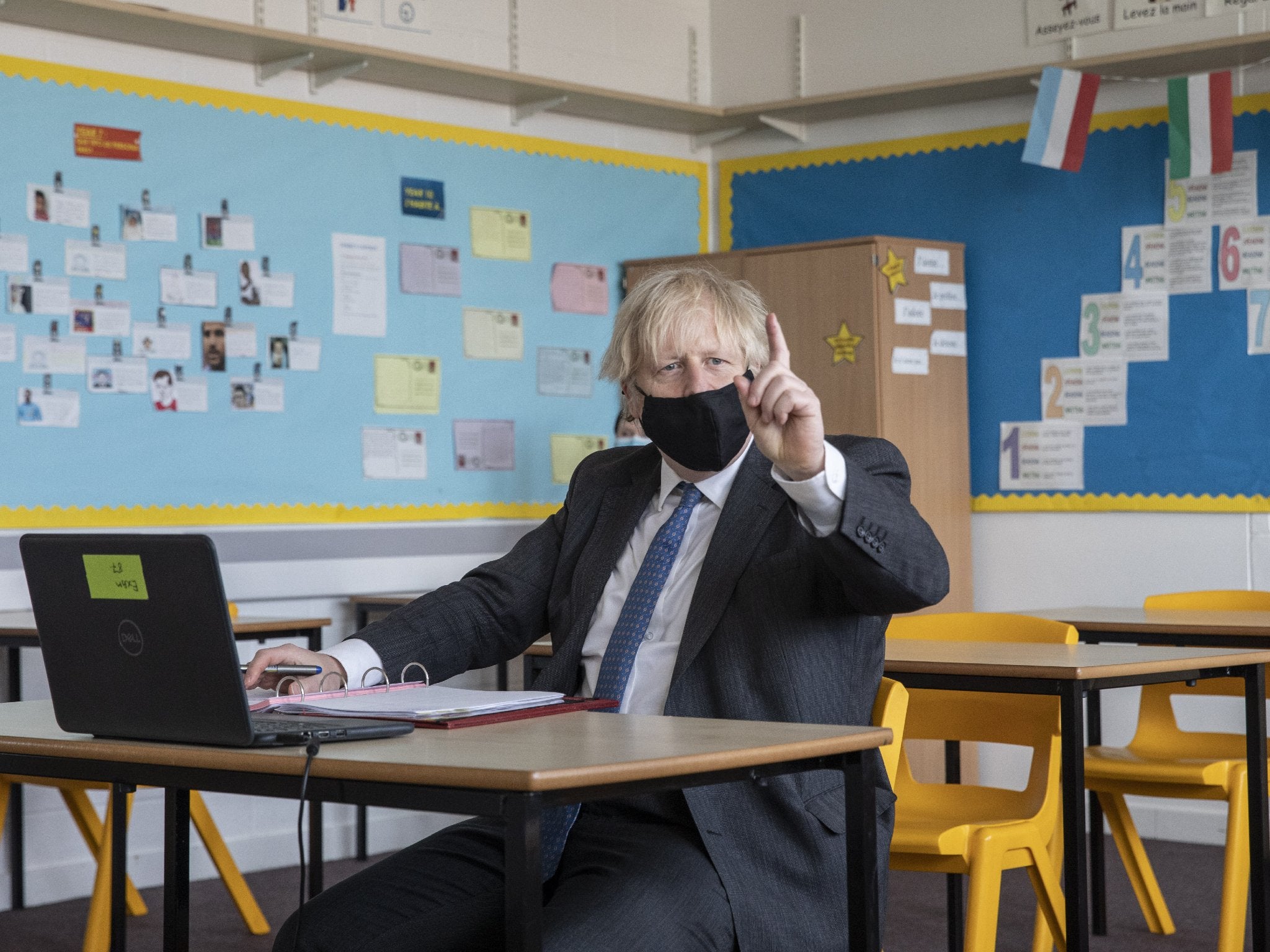Why I think Boris Johnson intends to ease lockdown faster than the plan
The prime minister seems to have boxed himself in by saying restrictions will be eased in stages, each starting ‘no earlier than’ set dates. John Rentoul does not believe him


The key word in the prime minister’s timetable for lifting the Covid-19 lockdown is “irreversible”: he doesn’t want to ease restrictions too quickly only to tighten them again. That’s why he wants a “one-way road to freedom”.
This is presumably meant to persuade the anti-lockdowners on the Conservative back benches, who were badly stung by demanding that Christmas should go ahead as a festival of social mixing just as the second peak of coronavirus deaths overtook the spring toll.
Boris Johnson’s caution has had the surprising effect, however, of radicalising some of the MPs who were not members of the anti-lockdown awkward squad last time. Several Tory MPs who are not members of the Covid Recovery Group (CRG) have complained that Johnson’s timetable is “ridiculously slow”.
Johnson’s statement hit the happy middle of public opinion, with about half of people thinking it was about right, and more of the rest thinking he is going too fast than too slowly. But public opinion can change, and Tory MPs are a more pressing audience.
So I thought it was notable that Johnson appeared to box himself in, saying that the second phase would begin “no earlier than” 12 April, the third “no earlier than” 17 May and the fourth “no earlier than” 21 June.
But those apparently solid walls against earlier unlocking are mere plywood. If the evidence suggested that an earlier easing of restrictions would be safe, Johnson would find ready support for doing so both from his MPs and from the general public. The reason he didn’t say that the deadlines could be brought forward was that this would have triggered a tidal wave of media speculation about what the benchmarks for earlier unlocking might be.
Some of the scientists are less interested in media management. Neil Ferguson, the original “Professor Lockdown”, was on Times Radio last night, saying: “Hopefully what we’ll see when each step happens is a very limited resurgence of infections. In which case, there’s a chance we can accelerate the schedule.”
It seems quite possible that this will happen. Every study of vaccines here and in Israel (where half the population has been vaccinated) seems to suggest that they are more effective than expected. We know now, for example, that the vaccines protect against transmission. The one big thing we do not know yet is how much a partially vaccinated population will suppress the faster-spreading new variant of the coronavirus.
Sir Patrick Vallance, the chief scientific adviser, spoke at yesterday’s news briefing about a combined uptake and effectiveness of the vaccines of 80 per cent, which would leave 20 per cent of vulnerable people unprotected.
That is what Johnson meant when he gave a cautious answer to Mark Harper, chair of the CRG, in the Commons. Harper demanded to know why restrictions could not be lifted as soon as the over-50s and “at risk” people, who have accounted for 99 per cent of coronavirus deaths, have been vaccinated. Johnson replied that there would still be a “significant minority” of those vulnerable groups “who will not have sufficient protection”.
What Harper has to hope for is not just that the vaccines will protect most of those at risk of serious illness and death, but that they will help drive the level of infection in the UK low enough to mean that the risk to the “significant minority” is small.
That could go either way. The latest figures show that cases have fallen dramatically from the peak in early January, but that they are levelling out now, and remain at a higher level than last summer. By the time all the over-50s and those “at risk” have been offered a vaccine, probably a little before the target date of 15 April (phase two of unlocking is “no earlier than” 12 April), we will know whether the number of cases has gone right down.
If they have, Prof Ferguson will be vindicated, and it will be safe to “accelerate the schedule”. I don’t think Johnson would hesitate to do so.






Join our commenting forum
Join thought-provoking conversations, follow other Independent readers and see their replies
Comments